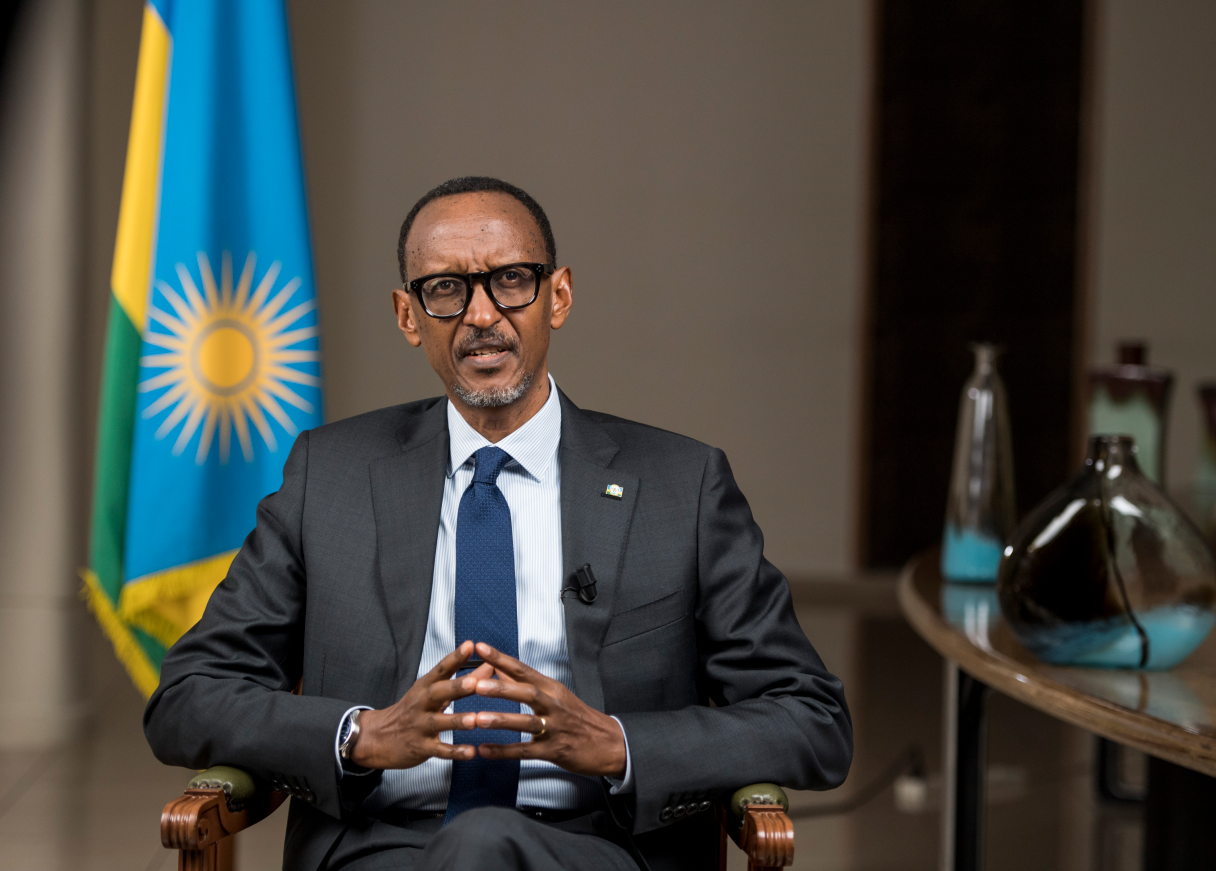Rwanda elections: Time for Kagame to begin to round off
In an election that recorded a high voter turnout of 98 per cent which took place on July 15, President Paul Kagame of Rwanda, running under the ruling Rwanda Patriotic Front, won a record 99 per cent of the votes, thereby securing a fourth term in office and beating his previous records of 98.63 per […]

President Paul Kagame
In an election that recorded a high voter turnout of 98 per cent which took place on July 15, President Paul Kagame of Rwanda, running under the ruling Rwanda Patriotic Front, won a record 99 per cent of the votes, thereby securing a fourth term in office and beating his previous records of 98.63 per cent in 2017, 93 per cent in 2010 and 95 per cent in 2003.
His opponents in the election, Democratic Green Party’s Frank Habineza and Independent candidate, Philippe Mpayimana, got 0.53 per cent and 0.32 per cent respectively.
Although the score he recorded in the elections is somewhat suspect, Kagame deserves our congratulations for the greater achievements recorded under his rule in Rwanda.
Few will doubt Kagame’s popularity in Rwanda, having masterminded the tremendous development and growth in the country since he swept into power in 1994, ending the horrendous genocide that claimed about a million lives in the country. Under him, Rwanda has become a reference point in terms of how a country can overcome adversity and near hopelessness to leapfrog into one of Africa’s success stories in human development indices. By all accounts, Rwanda under Kagame is one of the fastest-growing economies and a model of economic and political stability.
- Tanzania turns off power plants due to excess supply
- Dangote/NNPC rift: Nigeria’s petrol import from Malta jumps 43 times to $2.08bn
One prominent area of remarkable achievement in Rwanda is the growth in women’s involvement and participation in all sectors of the country’s life. It is thus not surprising that Kagame’s rating in Rwanda as well as in Africa and the world is high. In this regard, not many would doubt Kagame’s victory at the recent polls and indeed in the previous ones in which he scored very high votes.
While acknowledging such remarkable achievements, however, we must not fail to note also that under Kagame, political choices have remained limited. This is no doubt a reflection of the restricted political space in the country. Indeed, some of the country’s most vocal political critics were barred from the recent polls, a development which calls to question the level of political tolerance in the country.
Kagame needs to be reminded that the current trajectory, which emphasises economic and social development without a commensurate level of democratic development cannot augur well in the long run for Rwanda. While it may be acceptable during the early years of Rwanda’s rebuilding and rehabilitation, following the experiences of its past to undertake extraordinary steps in order to face the emergent challenges, it should not by any means be a permanent feature of life in Rwanda. Indeed, to consolidate the remarkable economic and social transformation, there is an abiding need to open up space for inclusivity, accountability and transparency in Rwanda. This can only be possible if the democratic space is deepened, and allowed to flourish in the country.
As the man who led the process of restoration in Rwanda for which he has deservedly won accolades the world over, President Kagame has a duty to begin to nurture the seed of democracy through openness and inclusion. He should resist the temptation to follow the path of other African rulers who have overstayed their welcome by building their countries around their personalities. Doing that would likely result in the regression of the progress achieved in the country over the years.
In his current fourth term, Daily Trust calls on President Kagame to take it as a priority to begin to lay a solid foundation for the entrenchment of democracy in Rwanda. This transformation should take the form of allowing more people and views into the political system to contribute their quota, just as he has done in other areas of life in the country. And he should consider the candid opinion of objective observers that he should not seek a fifth term as part of the measures necessary to engender confidence in the development and growth of democracy in the country.
Rwanda has come a long way from its ugly past and most of the credit for that must go to Kagame. But it must also be said that having come this far, he needs to consider the interest of his country and advance it on the path of genuine democratic growth and development, which it requires to complement its present level of social and economic development. This is the lasting legacy that President Kagame can bequeath his country, thereby etching his name in the pantheon of great African leaders and statesmen.
